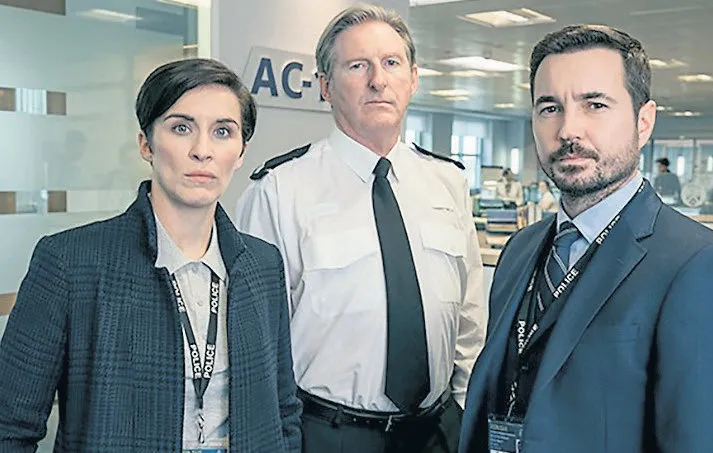Cold-blooded murder; police corruption; a criminal underworld; complex detectives. We’ve seen these ingredients in multiple TV shows in the last decade or more, so it is maybe a surprise that the opening episode of the fifth series of Line of Duty attracted 7.8 million viewers. That’s more than a tenth of the UK population, and doesn’t include those like me who saw it on iPlayer.
By the time this article is published, the series will be reaching its climax and those numbers may well have risen. TV awards and critical accolades win viewers, as does the BBC’s own hype, but there is something about this type of police drama which keeps on attracting attention, and something particular about Line of Duty which grips its fans.
Written by Jed Mercurio, who also wrote the successful 2018 series Bodyguard, Line of Duty features at its core three detectives (DC Kate Fleming (Vicky McClure), DS Steve Arnott (Martin Compston) and Superintendent Ted Hastings (Adrian Dunbar)) who work for AC-12, a unit investigating police corruption. Whilst each series focuses on its own storyline, a thread through all suggests a connection between that corruption and an unknown senior officer. To me the dialogue and camera work are obvious, but the plotting, with high levels of tension and multiple twists, is a massive hook. And there is something in the very everydayness of key characters and settings, even down to the drab colours, which makes the drama of the events more plausible and compelling.







Misogyny, rights & Rowling
It might have seemed as if the isolation of lockdown was making people mad last month when the stars of …